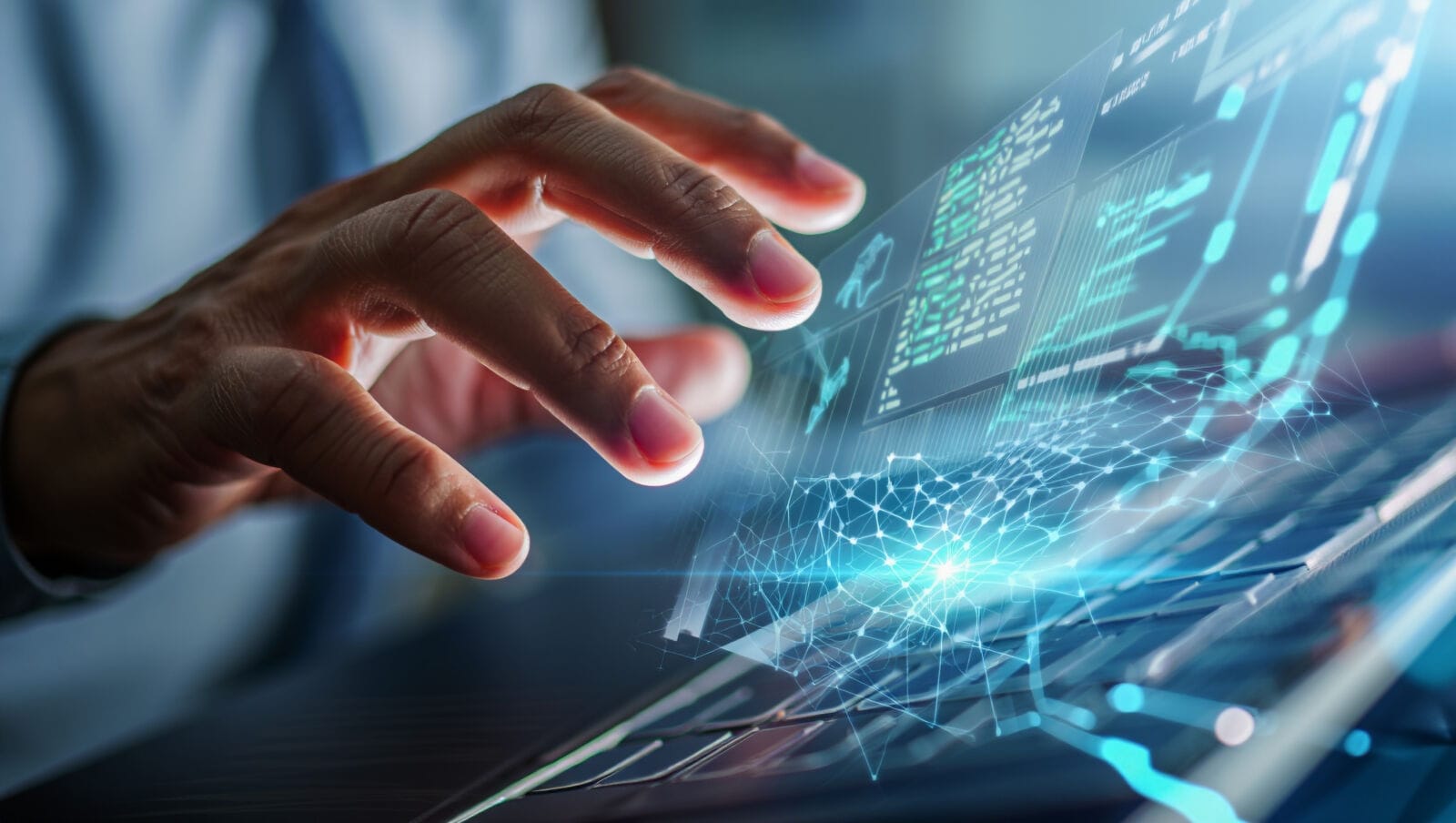Property management has faced a dramatic transformation over the past two decades. What was once a business reliant on phone calls, paperwork, and in-person interactions is now being redefined by apps, digital platforms, and automation. From using AI for tenant screening to streamlining rent collection, technology is making the industry smarter, faster, and more customer-centric.
Both tenants and landlords now expect efficient systems, convenient tools, and real-time communication. This transition highlights the key role technology plays in modern property management, shaping how properties are maintained, managed, and marketed.
The Digital Shift in Property Management
“The shift from manual to digital systems has changed the nature of property management. In traditional systems, managers handled cash payments, physical ledgers, and handwritten contracts. These procedures were prone to mistakes and time-consuming. Nowadays, cloud platforms, automation tools, and mobile apps handle these tasks with ease.” adds Ashley Durmo, CEO at Chalet
Property managers can now supervise entire portfolios remotely while tenants enjoy flexible services and quick responses. This digital-first approach improves efficiency and also meets the growing expectations of tenants who are used to quick solutions in other parts of their lives.
LOCAL NEWS: Here’s where new Phoenix residents are moving from
INDUSTRY INSIGHTS: Want more news like this? Get our free newsletter here
Bridging Communication Gaps
Mobile apps have become a crucial tool in property management. For tenants, these applications allow easy rent payments, instant communication with landlords, and maintenance requests. For property managers, apps offer dashboards that show tenant records, repair requests, and payment histories all in one place.
Real-time notifications ensure no request is neglected, and both parties benefit from smoother communication. Apps remove missed calls and lost emails, offering a level of transparency that builds trust. In many scenarios, apps also support digital lease signing, document sharing, and community engagement. Hence, it makes them a complete property management solution.
Online Rent Collection and Digital Payments
Rent collection was once one of the most stressful aspects of property management. Cash needed receipts, checks got delayed, and manual recordkeeping created room for disputes. Digital payments have resolved these issues. Tenants can now pay easily through credit cards, debit cards, or mobile wallets. They also often have the option to schedule recurring payments. Property managers benefit from reduced late payments, automated recordkeeping, and instant confirmations.
Online systems also offer secure payment tracking, which minimizes disputes between landlords and tenants. Since this critical function is digitized, property managers save their time and offer tenants the convenience they expect in the current digital era.
Cloud-Based Property Management Systems
“Cloud computing has changed how property management data is stored, accessed, and shared. Rather than relying on localized servers or filing cabinets, managers now use cloud-based systems that can be accessed from any device. This means tenant records, maintenance histories, and financial reports are always available, even on the go.” shares Jay Soni, CEO of Yorkshire Fabric Shop
Cloud systems also enhance collaboration by allowing managers, accountants, and landlords to view the same data simultaneously. Built-in encryption and security tools make sure sensitive information remains secure. As portfolios evolve, cloud platforms scale effortlessly, which makes them an affordable solution for both established property management firms and small landlords.
Smart Home Technology and IoT Devices

Smart home technology is no longer just a luxury. It is becoming a standard in modern rental properties. IoT devices give both managers and tenants greater convenience and control. These devices may include thermostats, smart locks, and security cameras. Tenants can lock their door using their phones, monitor energy use, and adjust heat remotely.
Meanwhile, property managers can grant temporary access to contractors, reduce energy costs, and monitor security systems with automated controls. These upgrades not only boost tenant satisfaction but also enhance property value. In competitive markets, technology-enabled houses attract more tenants and can even justify higher rental rates.
Maintenance Automation and Preventive Tools
“Maintenance requests are usually the biggest pain point in property management. However, technology is making this procedure far more efficient. Tenants can submit their repair requests using apps, add photos, and track progress. On the manager’s end, automation tools route these requests to the suitable contractors and schedule repairs without any delay.” Ben Austin, CEO of Absolute Digital Media
Smart sensors that detect HVAC malfunctions or leaks allow preventive maintenance before issues escalate. This minimizes emergency repairs, cuts costs, and extends the lifespan of property assets. For tenants, the assurance that problems will be addressed immediately creates a more positive living experience and empowers lease renewals.
The Role of Data Analytics
“Data is becoming one of the strongest tools in property management. With advanced analytics, managers can monitor rental income, occupancy rates, tenant behaviour patterns, and maintenance costs. Using these insights, there can be better forecasting and smarter decision-making. For instance, analytics can foresee when tenants are likely to move and highlight properties with higher repair needs.” believes Carl Panepinto, Marketing Director at Manhattan Flood Restoration
Moreover, it can also suggest competitive rental prices. When managers use data instead of guesswork, they can increase profitability and efficiency. Tenants can also benefit indirectly since data-driven decisions result in well-maintained properties, responsive management practices, and fair pricing.
Virtual Tours and Digital Leasing
The way tenants look for properties has changed significantly with the help of technology. Rather than scheduling multiple in-person visits, potential renters can now explore units using 3D virtual tours, video walkthroughs, or drone footage.
This saves a lot of time for both property managers and tenants. It also makes properties accessible to individuals relocating from other countries or cities. Hence, it expands the potential tenant pool. Once a tenant decides to proceed, lease agreements can be signed digitally via secure platforms. This removes paperwork, increases the process speed, and creates a smooth transition from property viewing to move-in.
Artificial Intelligence in Property Management
Artificial Intelligence is increasingly playing a critical role in automating repetitive property management tasks. AI-powered chatbots handle tenant queries and offer instant responses to inquiries about maintenance, rent, or lease terms. Machine learning algorithms can examine tenant applications, predict potential late payments, and assess risk profiles.
AI also helps property managers optimize rental rates by examining market trends in real time. While AI does not replace human supervision, it frees managers from routine tasks. It allows them to focus on strategic planning and tenant relationships. The integration of AI marks a significant step toward smarter property management.
Sustainability Through Technology

Sustainability is now a concern in modern property management, and technology is playing a central role in achieving it. Solar panels, smart thermostats, and energy-efficient lighting help reduce energy use and cut costs. Smart irrigation systems and water-saving devices promote conservation.
Property managers can also monitor energy consumption through apps, finding areas where improvements can be made. Tenants increasingly value sustainable living, so properties with green technology enjoy higher demand. Beyond cost savings, sustainability technology improves a property’s reputation, making it more attractive to eco-conscious renters and aligning with the extensive goals of responsible property management.
Challenges of Technology Adoption
While technology provides many benefits, it also comes with challenges. Some tenants, particularly older individuals, may find portals and apps difficult to use. Property managers should balance modern systems with accessible alternatives. Security is yet another significant concern since sensitive tenant and financial data must be secured from cyber threats.
The cost of adopting advanced technology can be high, particularly for smaller property owners. Moreover, new systems demand staff training to ensure proper use. Without this, technology can build confusion instead of convenience. Addressing these challenges is crucial to maximize the advantages of digital property management.
The Future of Property Management Technology
“Looking at the future, technology will only evolve more central to property management. We can predict even greater use of AI, fully automated smart buildings, and blockchain-based lease agreements. Virtual reality could make property tours even more engaging, while predictive analytics will help managers predict tenant demands before they arise.” Daniel Cabrera, Owner and Founder of Fire Damage House Buyer
Automation will handle more back-office work, which will free managers to focus on growth and relationships. Sustainability will remain a potential driver, with waste management systems and smarter energy becoming standard. Ultimately, the future of property management lies in combining creativity with a human touch to build seamless living experiences.
Conclusion
The role of technology in property management cannot be overhyped. From mobile apps that ease the rent payments to AI tools that optimize decision-making, digital solutions are changing how properties are run. These advancements reduce costs, improve tenant satisfaction, and enhance efficiency.
In this way, it becomes invaluable to modern landlords and managers. However, successful adoption demands addressing challenges like training, cybersecurity, and costs. As technology continues to grow, property managers who encourage innovation will gain a competitive edge. They will provide convenience and value. In this new era, technology is not only a tool but a foundation of property management.




